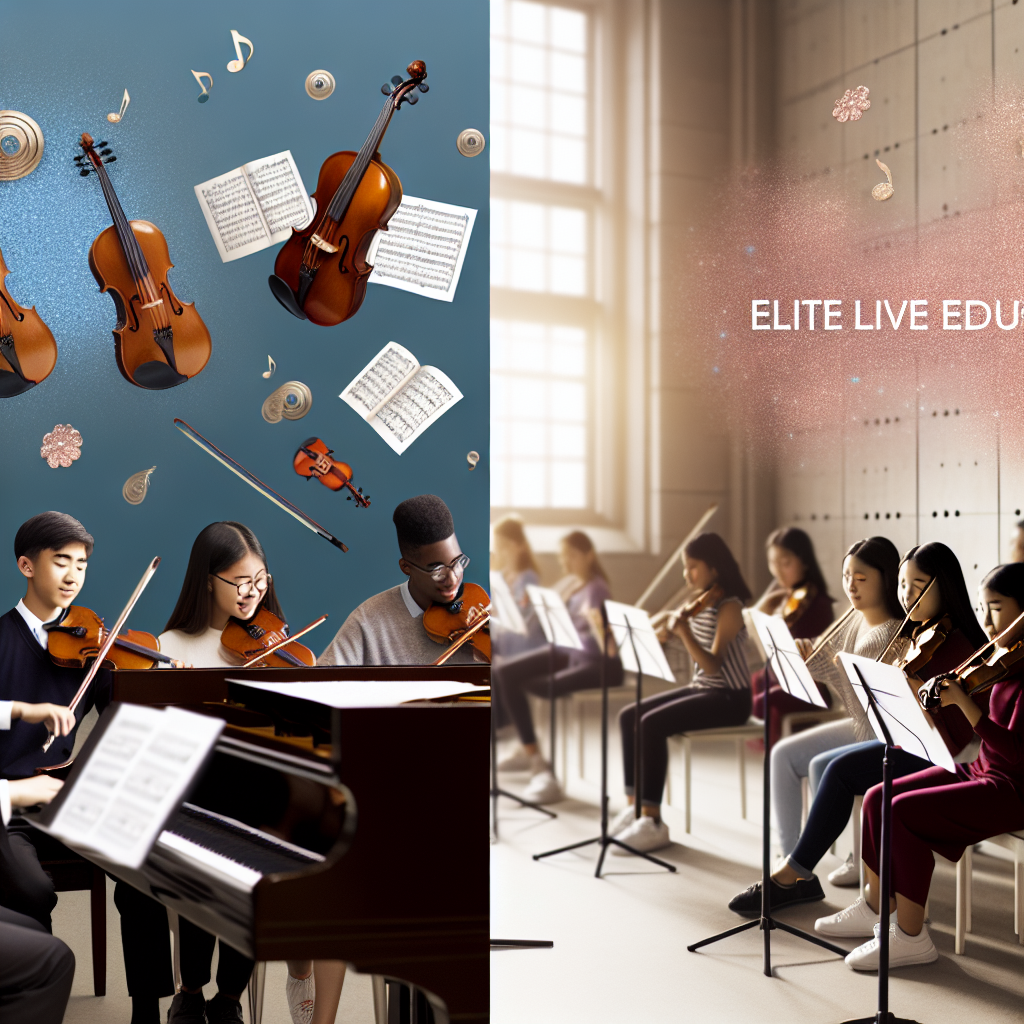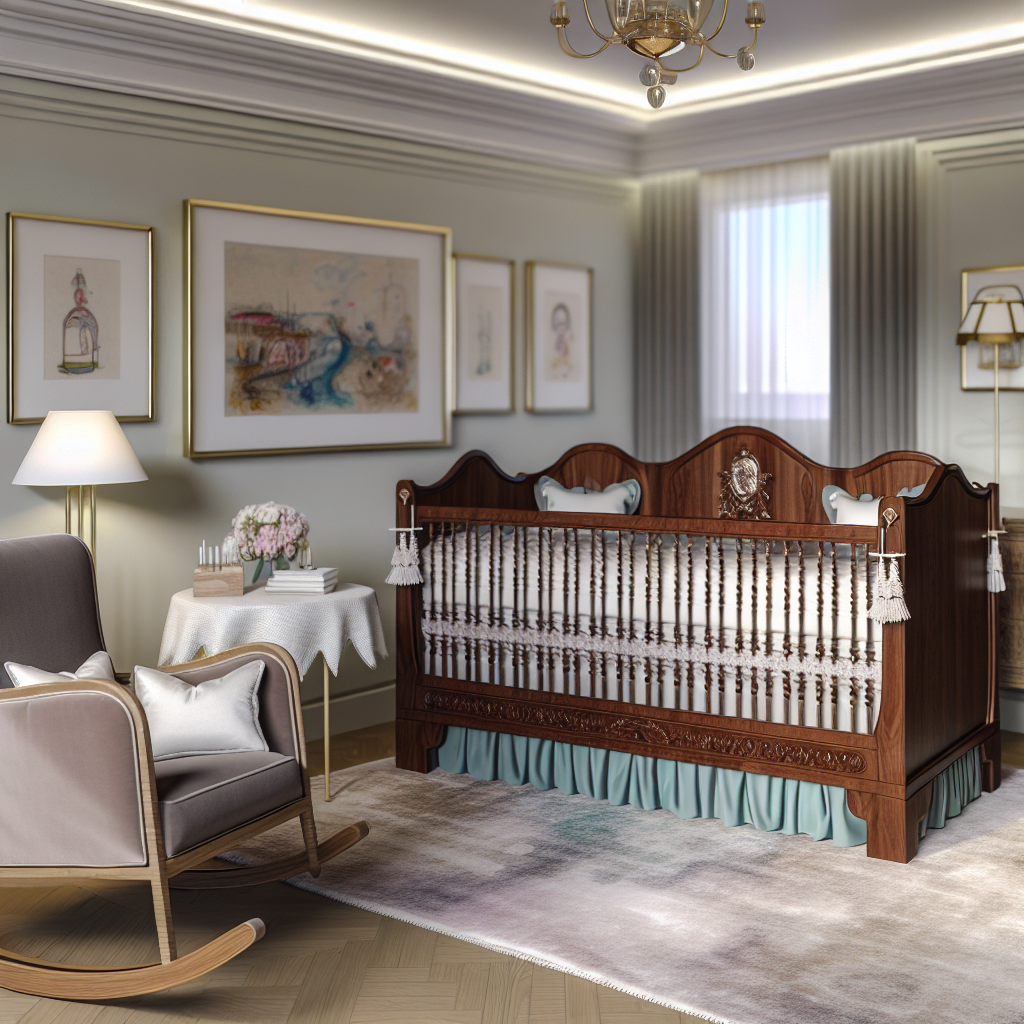Elite Music Education Programs Comparison
Introduction
In today’s competitive and increasingly global landscape, affluent families are seeking ways to provide their children with more than just an education—they’re investing in experience, excellence, and opportunity. Elite music education is no longer considered an extracurricular commodity but a fundamental part of a well-rounded upbringing. For children growing up in households of means, this level of education is not just about learning an instrument; it’s about instilling discipline, creativity, and cultural fluency while positioning them in the spheres of influence where the arts matter most.
Music education at a high level develops cognitive ability, fosters emotional intelligence, and refines fine motor skills. But beyond the biological and psychological benefits, music opens doors to prestigious competitions, international recognition, conservatory-based scholarships, and networking opportunities within the artistic and academic elite. For parents, choosing the best program isn’t simply about the reputation of a school—it’s about tailored curriculums, direct mentorship from globally respected faculty, immersion opportunities, and long-term alignment with collegiate and career aspirations.
Today, several private academies and conservatory-focused music programs have risen to meet the high standards of the luxury family consumer. Whether it’s The Juilliard School’s Pre-College Division in New York City, the internationally respected Royal College of Music Junior Department in London, or cutting-edge digital platforms like Virtu.Academy offering live masterclasses from Grammy-winning artists—there are more compelling choices than ever to cultivate prodigy-level talent.
Access to this echelon of instruction is about more than affiliations—these programs often include audition-only admissions, personalized mentorship, and exposure to world-renowned performance opportunities in prestigious venues from Lincoln Center to the Royal Albert Hall. With many families now investing in dedicated music studios built into their homes, employing private in-home coaching, and even relocating for the best educational opportunities, it’s essential for parents to understand which elite programs best align with their child’s skills, goals, and learning methodology.
In this article, we’ll dive deep into a comparative overview of several elite music education programs across North America and Europe. We’ll review the key differentiators, pedagogies, cost structures, and long-term benefits to help empower parents with the insight needed to choose the ultimate musical path for their child.
Elite Music Program Features and Supporting Studies
The Juilliard School Pre-College Division (New York, USA)
A pinnacle of classical music training, Juilliard’s Pre-College Division is more than a preparation program—it’s an immersive musical ecosystem. Designed for highly gifted students aged 8 to 18, admission is extremely competitive, typically requiring both live performance auditions and academic records.
The program operates on Saturdays during the school year, where students undertake a full conservatory-style training including private lessons, ensemble playing, theory, composition, music history, and ear training. Students also get the opportunity to perform in iconic venues such as Alice Tully Hall and participate in masterclasses with globally renowned musicians. This elite pre-college program is ideal for those seeking a direct pathway to institutions like Juilliard, Curtis Institute, or other top-tier conservatories globally.
Royal College of Music Junior Department (London, UK)
Largely regarded as one of the most holistic junior conservatory experiences in the world, the Royal College of Music Junior Department runs every Saturday alongside the college’s main academic year. It provides serious, pre-college music training for school-aged students across the UK and beyond, through programs that balance musicianship, performance, and theory work.
Students are immersed in individual instrumental or vocal tuition, chamber music, orchestra playing, and music technology, with added emphasis on theory, aural, and practical musicianship. Many graduates continue on to places at Cambridge, Oxford, or full scholarships at conservatories, evidencing a clear pipeline from pre-college musical training to higher education success.
Colburn Music Academy (Los Angeles, USA)
Colburn Music Academy is one of the most elite and exclusive programs in the U.S. for serious young musicians, offering students full scholarships, including tuition and housing. Designed for students from grades 9–12, Colburn is located next to the LA Philharmonic and partners closely with professional institutions in the cultural capital of the West Coast.
The tight-knit, immersion-based experience makes Colburn much like a boarding conservatory, where every student lives on campus, taking part in private lessons, orchestra, chamber ensembles, music theory classes, and college preparation. Many Colburn Academy students land spots in prestigious international competitions, festivals, and conservatories such as the Curtis Institute, Juilliard, and the Colburn Conservatory itself.
École d’Art Musicale de Paris (Paris, France)
A more boutique option located in one of the world’s music capitals, the École d’Art Musicale de Paris integrates traditional French conservatory discipline with modern-day global musical needs. Students who attend this school often prepare for placement into elite French conservatories by following curriculums aligned with the Ministère de la Culture.
Through its programmatic layout, young musicians are trained in performance pedagogy, theory, solfège, historical repertoire, and international competition readiness. Intensive quarterly evaluations help track progress and offer the structure needed for advancement into broader European arts communities.
Virtu.Academy (Global, Digital)
In an age where technology enables flexibility and access, Virtu.Academy delivers masterclass-level instruction to globally mobile and time-constrained students, all online. It connects students with Grammy, Tony, or Emmy award-winning teachers as well as faculty from top conservatories like Juilliard and Berklee.
Virtu.Academy’s appeal lies in its flexibility, quality virtual experience, time-zone adaptability (including significant support for Asian students), and use of premium sound platforms to maintain audio fidelity. This is especially useful for families living internationally, in rural areas without nearby elite options, or during transitional times like a global health crisis.
Scientific Impact of Music Education on Children
Scientific studies have continually reinforced the profound developmental benefits of consistent, high-quality music training. Research from the University of Southern California’s Brain and Creativity Institute found that children with early music training experience accelerated development in auditory processing, language acquisition, and memory consolidation.
Further, a study published by Stanford University shows that music training boosts areas of the brain responsible for attention, situational prediction, and memory updating—all essential executive functions for leadership, academic success, and real-world problem solving.
Additionally, a review by the American Psychological Association confirms that students who study an instrument outperform their peers in subjects like math and reading. Structured music education helps instill self-discipline, self-expression, resilient learning behaviors, and time management—all considered markers of future high-potential leadership.
Conclusion
Investing in elite music education offers more than creative enrichment—it cultivates transferable skills like discipline, strategic thinking, and cultural literacy. Whether through in-person conservatory programs such as Juilliard, Colburn, and RCM, or the high-touch technology of Virtu.Academy, today’s top offerings are redefining what’s possible for young musicians.
Understanding the core philosophies, structures, and long-term trajectories of these programs enables families to make informed, strategic decisions tailored to a child’s inherent talent and personal goals. As science and global policy continue to support the integration of music into elite education, the role of conservatory-level training is no longer marginal—it is essential.

Dominic E. is a passionate filmmaker navigating the exciting intersection of art and science. By day, he delves into the complexities of the human body as a full-time medical writer, meticulously translating intricate medical concepts into accessible and engaging narratives. By night, he explores the boundless realm of cinematic storytelling, crafting narratives that evoke emotion and challenge perspectives. Film Student and Full-time Medical Writer for ContentVendor.com




